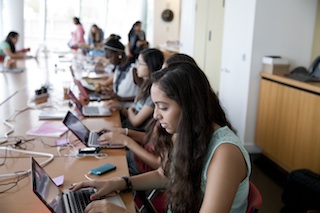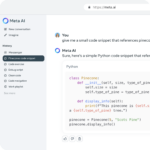
Girls Who Code wants to close the gender gap in the technology industry. The non-profit organization just announced an expansion to its Summer Immersion Program to help educate girls in computer science skills. Previously, the organization provided 19 programs reaching 375 girls, but with the expansion, the organization will be providing 60 programs reaching 1,200 girls, starting in 2015.
“The gender gap isn’t just a Silicon Valley issue anymore,” said Reshma Saujani, founder and CEO of Girls Who Code. “The shortage of women in technical roles, whether it’s retail or entertainment, is a massive crisis both in terms of innovation and socioeconomic equality throughout the United States.”
Rally Software partners up with Code for America
As part of a new strategic partnership, Rally Software will be providing Code for America with new funding, tools and expertise in order to help its mission of improving communities with technology with its Brigade pilot program.
“We believe that empowered people who can adapt to change and harness their collective creativity are essential for solving today’s big problems,” said Ryan Martens, founder and CTO of Rally. “We’re eager to work with Code for America to further our social mission by mobilizing the citizen engineers participating in the Brigade program.”
The Rally for Impact Foundation has made an initial US$50,000 grant to Code for America. In addition, Rally will supply its software solutions for agile teams, and its agile coaches will work as mentors in Code for America’s 2015 Brigade program.
Stanford University to study effects of AI on society
Stanford University has announced it will conduct a hundred-year-long study to reveal the effects artificial intelligence has on society.
A standing committee and a faculty director will supervise the study. The faculty director will be responsible for organizational and programmatic supervision, and the standing committee will be in charge of taking on the mission of the study. In addition, the standing committee will enlist a study panel to assess the effects of AI over time. Some topics the study is expected to focus on include technical trends, privacy and machine intelligence, democracy and freedom, criminal uses of AI, and loss of control of AI systems.
More information is available here.






